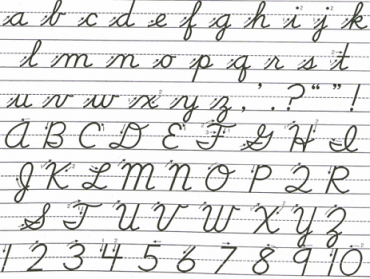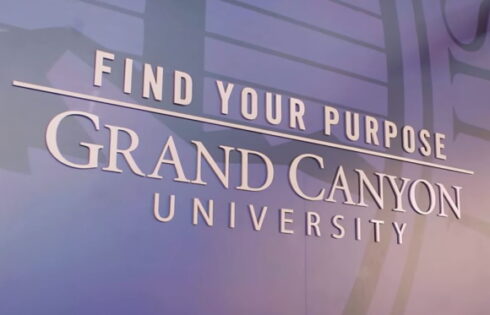
Is cursive on its way out in Indiana classrooms?  That depends on what individual schools decide.
That depends on what individual schools decide.
Earlier this month, a widely cited Time magazine story reported that Indiana would no longer require schools to teach cursive, sparking debate over whether the change would be a loss for students.
But if cursive’s defenders hope to protect children’s penmanship, it may be too late. A spokesperson for the Indiana Department of Education clarified that almost all states—not just Indiana—are changing their policies regarding the teaching of cursive.
“Indiana is just one of 48 other states adopting the Common Core State Standards, which do not spell out cursive as a requirement—just keyboarding,” said Stephanie Sample, communications director for IDOE. “Indiana supports local school corporations’ ability to determine and implement their own curricula, so districts may still teach cursive handwriting.”
The Standards were created by the National Governor’s Association and the Council of Chief State School Officers. State legislatures and education boards began adopting them last year. According to the Standards’ website, only Alaska, Minnesota, Montana, Nebraska, Texas, and Virginia have not yet approved them. CCSO did not respond to requests for comment.
Some writing experts weren’t concerned about cursive’s potential departure from most U.S. schools.
Cursive has been slowly phased out and will become more rapidly abolished,” said Anne Trubek, an associate professor of rhetoric and composition at Oberlin College. “I do not think it is a loss, and could remain in the curriculum as an art, like calligraphy, rather than a basic skill, for elementary school kids.”
Instead, Trubek was optimistic about the inclusion of typing in the new education standards.
“If keyboards can be in all classrooms, elementary school kids could learn how to type fast—something that is now a basic skill—sooner,” she said.
Others worried that without instruction in handwriting, kids won’t know how to sign their names on important documents or send handwritten messages.
“The other day, as I crafted a handwritten thank-you note to someone who’d invited me to give a speech, I considered how sad it would be if, in the future, no one ever received a note written by hand,” wrote Rae Pica, co-founded of BAM Radio Network, in the Huffington Post.
But whether or not cursive’s demise is a good thing, another question remains: Why is Indiana in the spotlight if 48 other states have taken the same steps?
“My only guess is a reporter was taking a look at our website or was forwarded an email that included a memo our curriculum staff sent to the field in April,” Sample said. “They wrote a story about it, and it spread like wildfire.”
Like The College Fix on Facebook / Follow us on Twitter





Please join the conversation about our stories on Facebook, Twitter, Instagram, Reddit, MeWe, Rumble, Gab, Minds and Gettr.